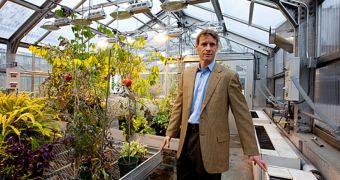If you think that the world's population today is large, try to add an additional 2.5 billion people to the list. Conservative estimates say that this is the extra number of individuals that will inhabit the planet by 2050, in addition to the over six billion that live today. The additional population will place even more pressure on farmlands to produce more food, but, on the other hand, global warming will subject these territories to varying precipitation and temperature patterns that could hinder harvesting. Therefore, more and more researchers are beginning to realize, we must start thinking of changing our eating habits, PhysOrg reports.
According to Harvard Medical School (HMS) medicine instructor Samuel Myers, it may not be the time to panic yet, but authorities should take a more involved stance in the matter. He explains that the global food-supply system is already beginning to show signs of cracking, on account of the billions of people it currently supports. As the population rises, these cracks will become increasingly larger, until the entire system will eventually fall apart. If you add to this the effects of climate change and global warming, we could be facing disaster in the not-too-distant future, Myers says. The expert presented a host of very convincing pieces of evidence to support his analysis.
The scientist highlights that those who think that the current level of food production made Thomas Malthus a liar are dead wrong. This individual predicted a long time ago that the growing population would exceed the capabilities of the food system at one point. The “green revolution” of the 20th century made his predictions seem slightly ridiculous, but only for a little while. Nobel Prize winner Norman Borlaug, who was one of the main promoters of the agricultural revolution, said at the time that the new approach to farming the land (by using altered crops, pesticides and so on) would only buy the world a few extra decades of food security. In other words, we will reach Malthus' predictions, only a bit later.
Agriculture at this point eats up about half of all freshwater resources, and between 33 and 50 percent of all dry land that is not covered by ice or sand. In spite of the massive resources, 2009 saw on average one billion people go to bed hungry each night. The inequities of the current food-supply network are extremely visible. While a recent study shows that Americans throw away up to 20 percent of what they buy, many citizens of African nations do not even benefit from a minimal source of subsistence. In addition to lacking food, these people also lack water, which is considered common good in the Western world, and is even rented to private corporations.
“We are already coming against very sharp constraints in the use of water,” Myers says. He explains that boosting yield levels over a given surface, and promoting the efficient use of water should be the two main directions of future investigations. As the global middle-class is raising in purchasing power year after year, a constant demand for processed food develops. But lands will have to double their production of resources for these goods, which means that the amount of used water will have to triple. This is impossible, as half of the freshwater is already used for agriculture.

 14 DAY TRIAL //
14 DAY TRIAL //